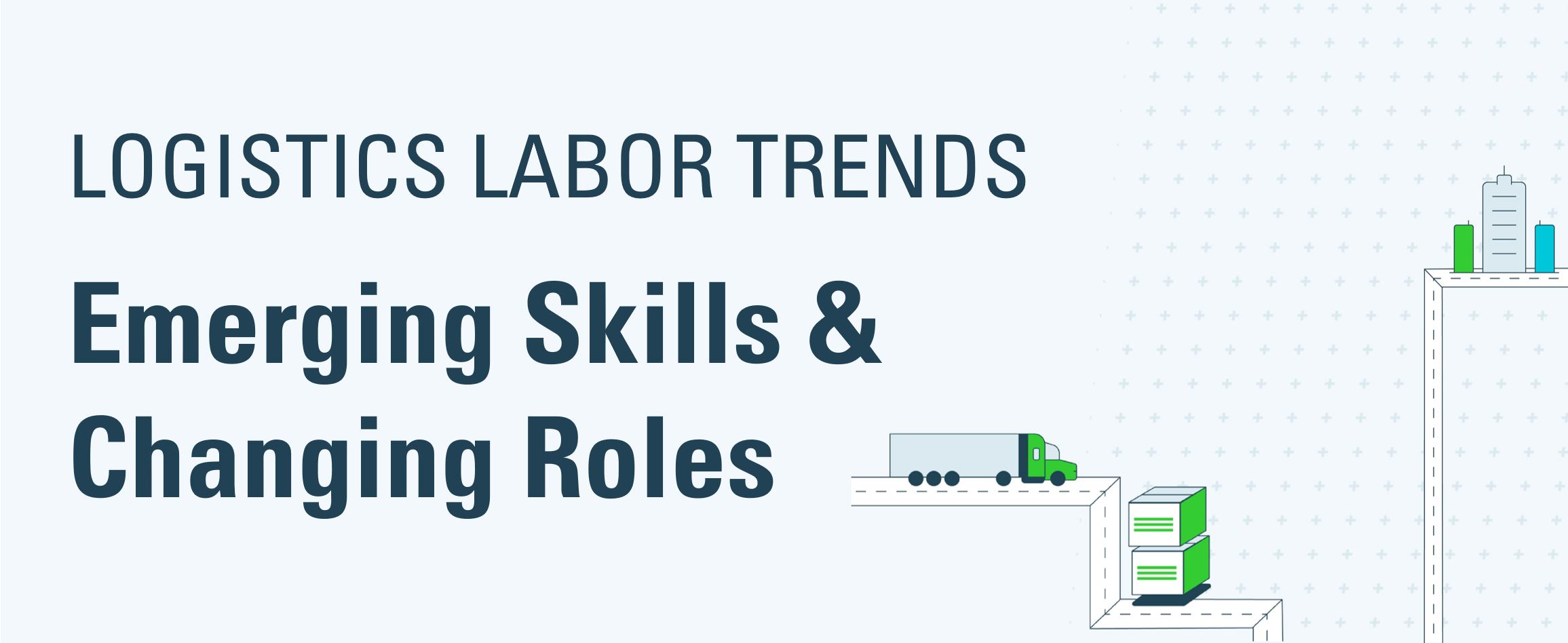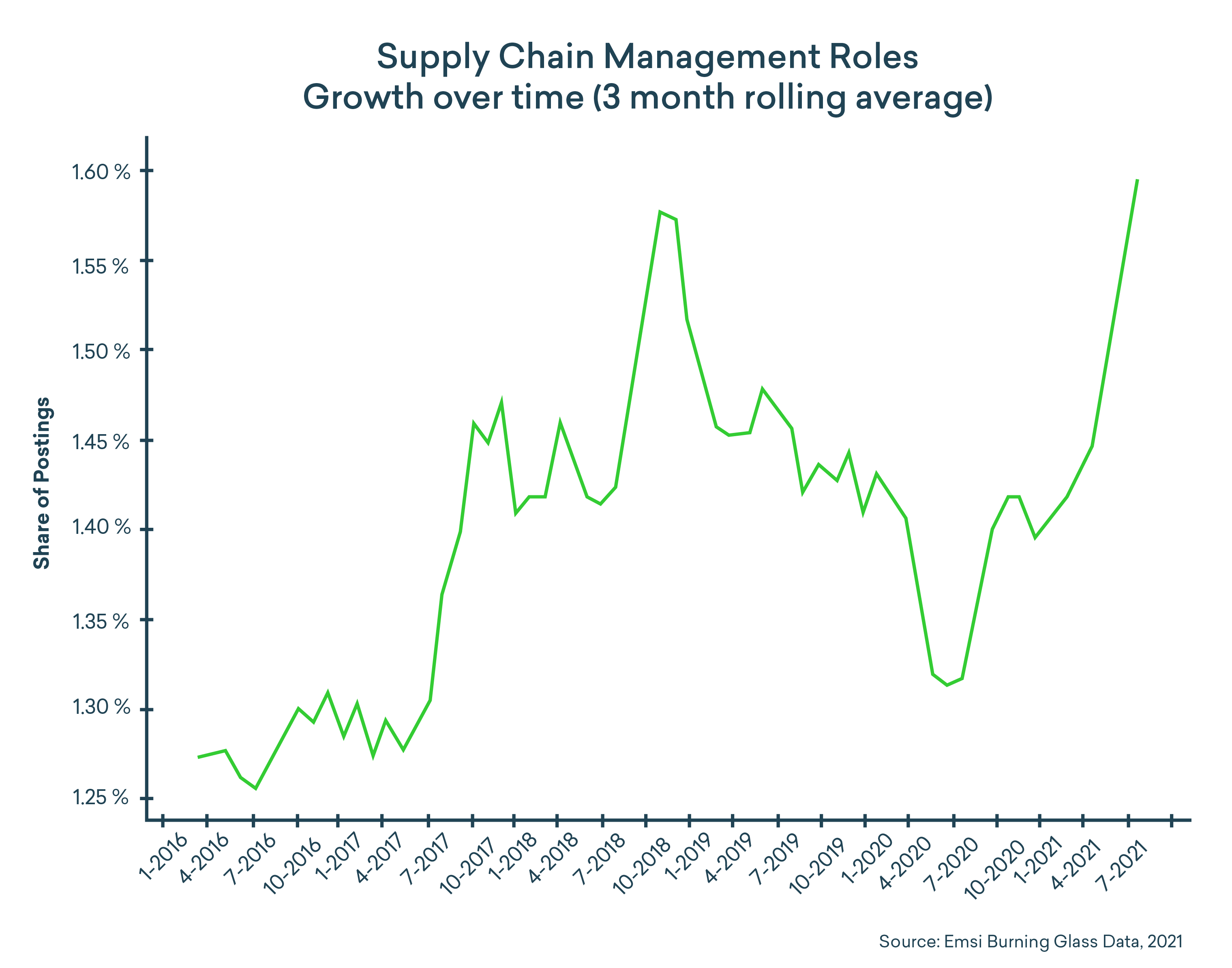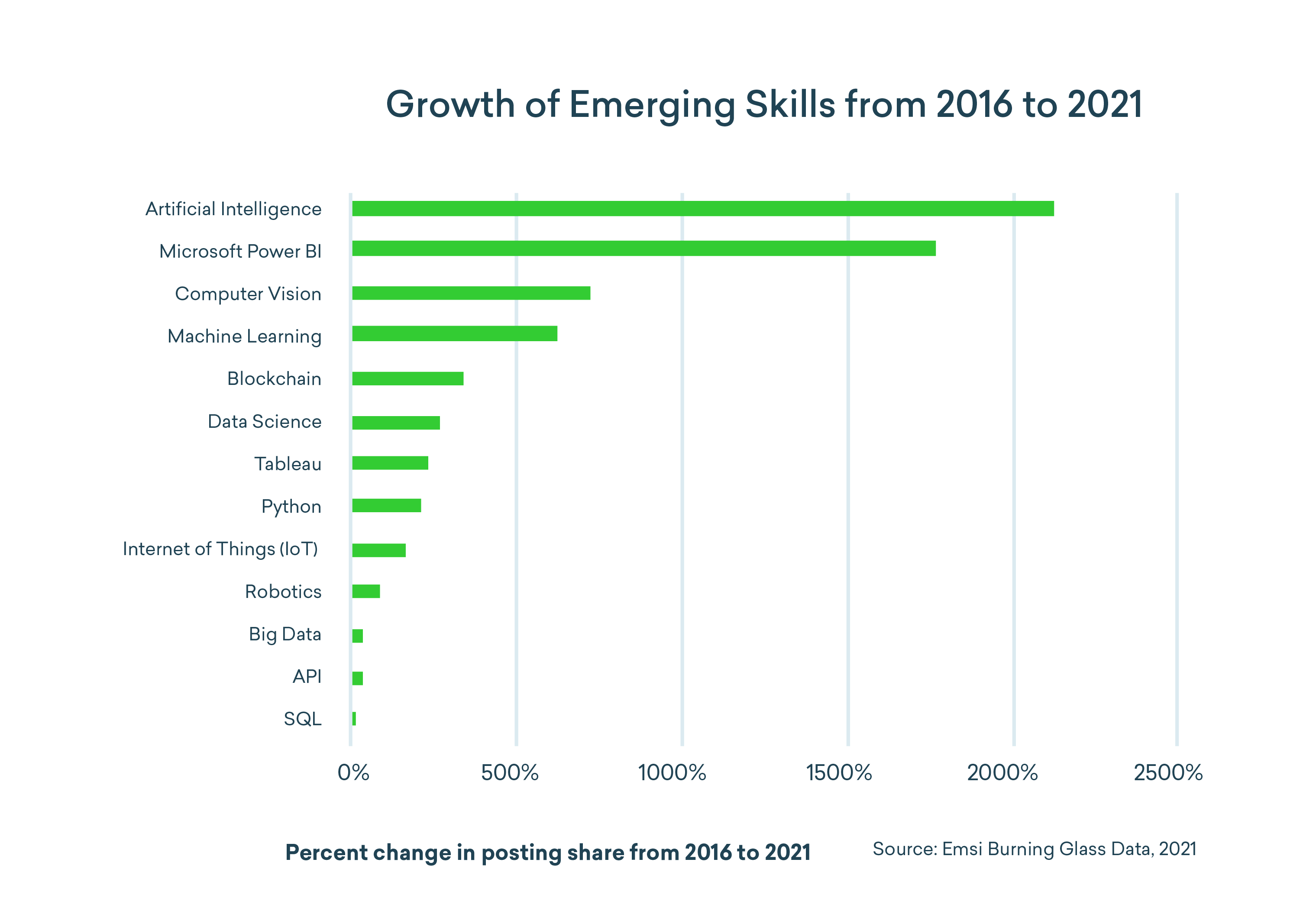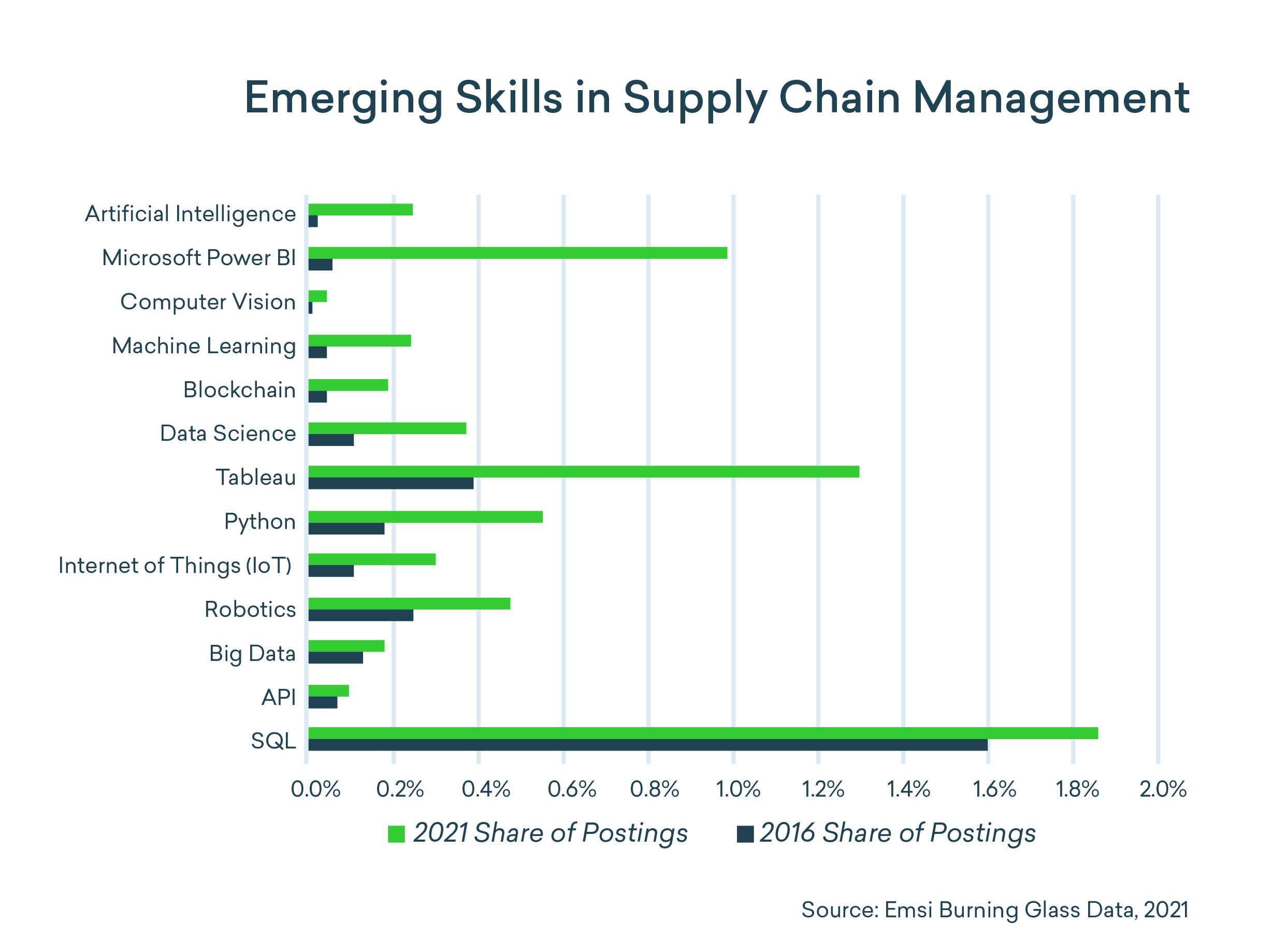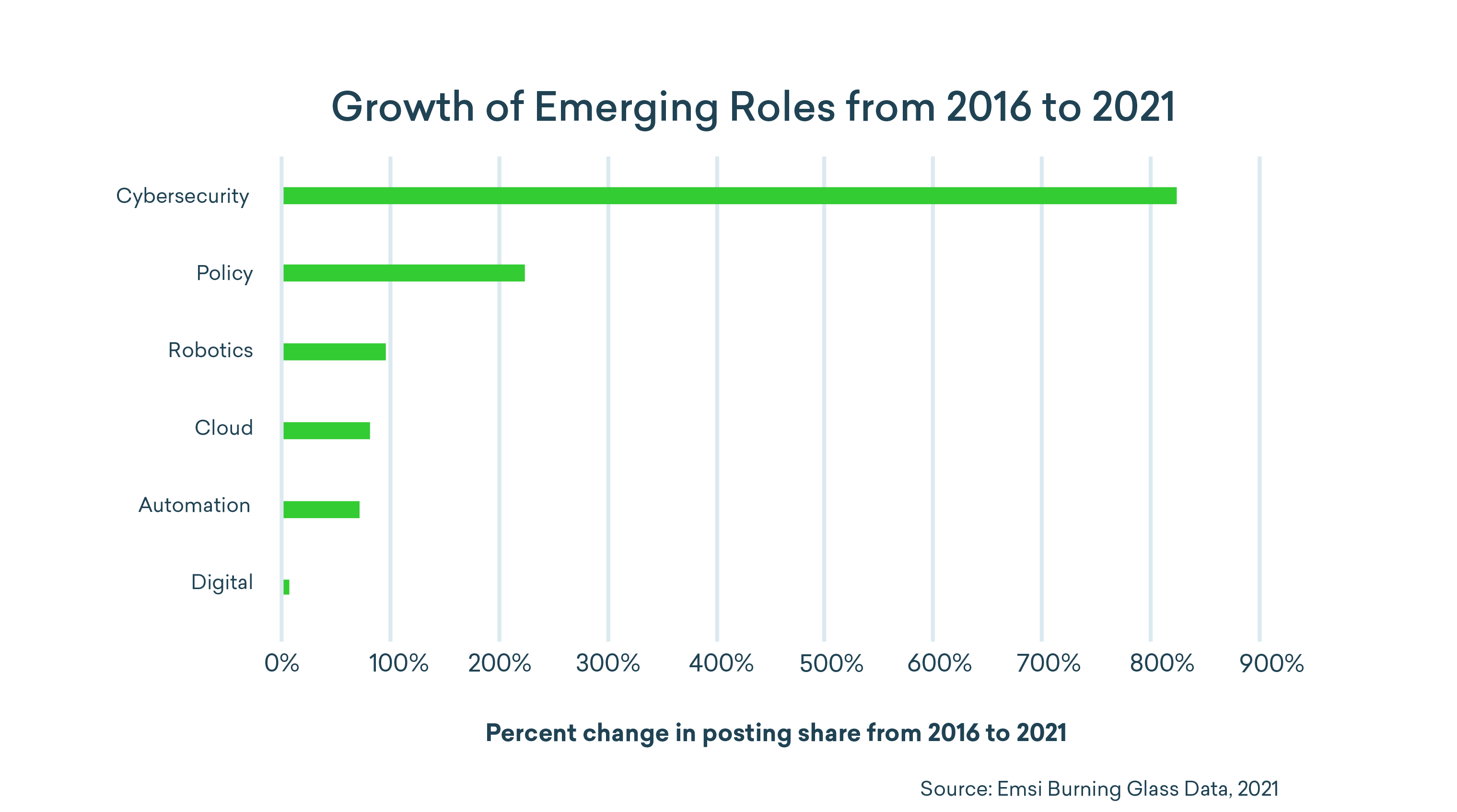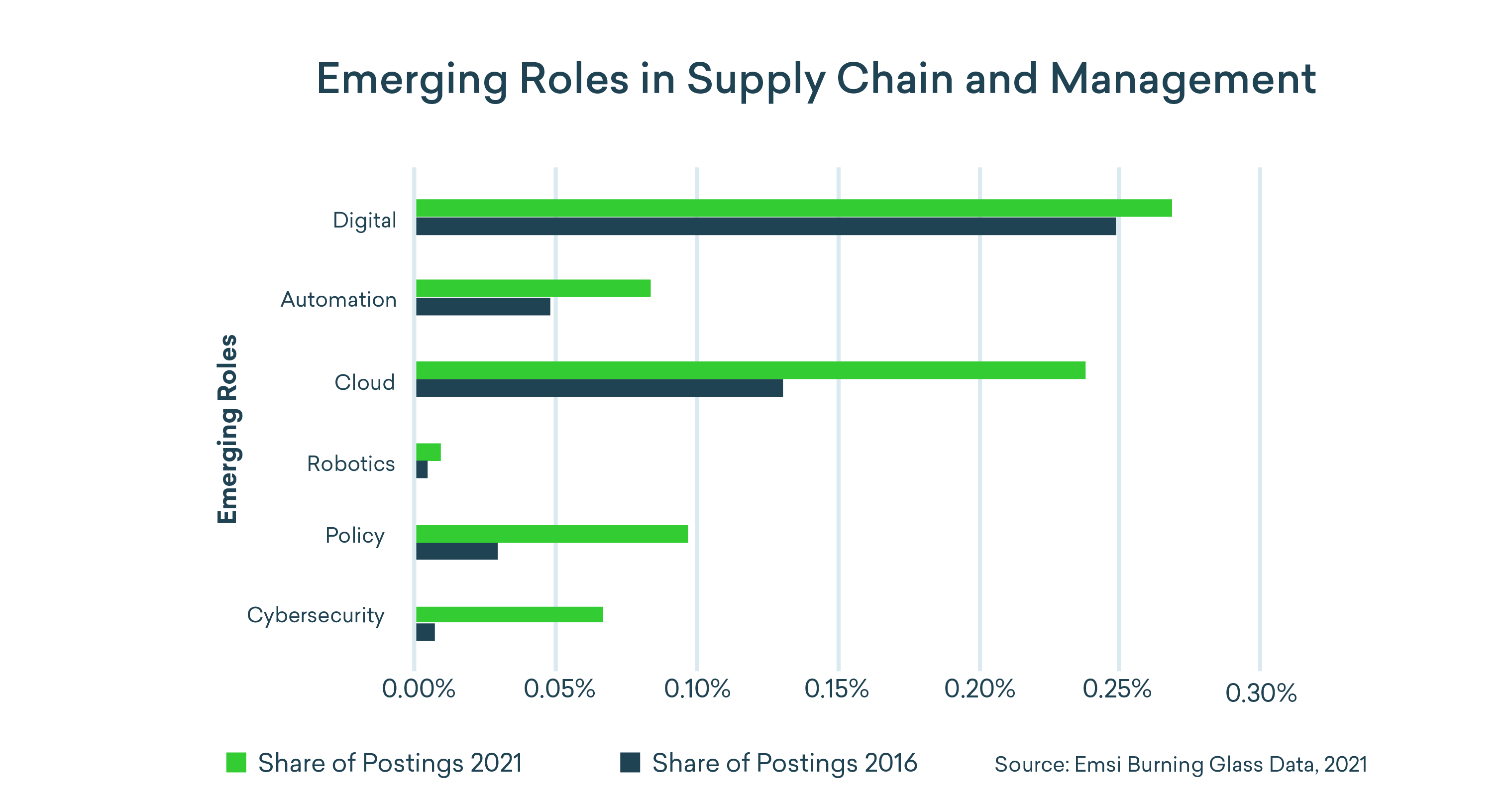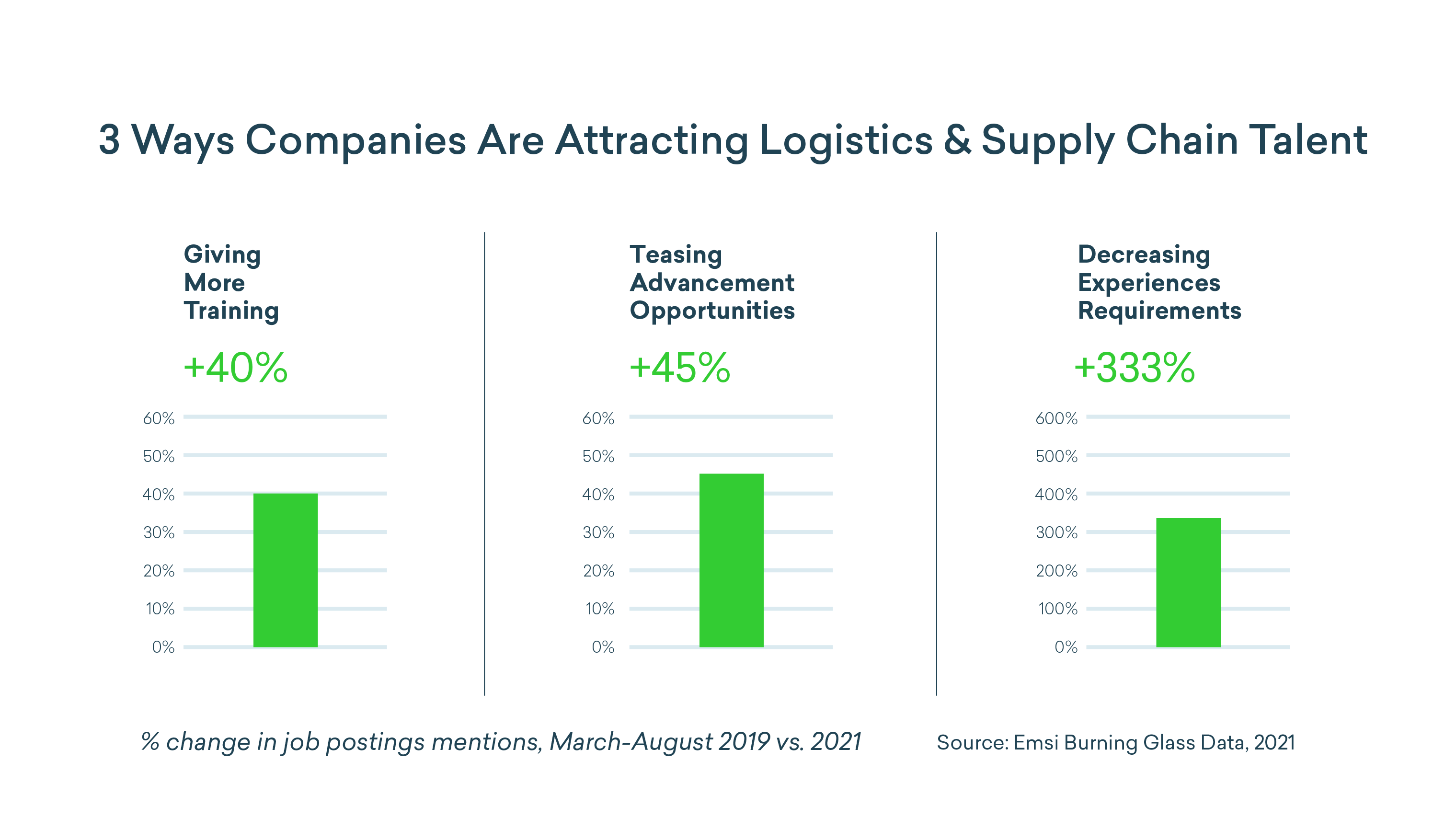Trending Logistics Job Skills: How Supply Chain Managers Are Hiring
If you work in logistics, you know exactly how unpredictable the industry is these days.
Delays, backlogs and shortages haven’t just been your day-to-day reality, they’ve become national news.
It’s tempting to hold out hope for a technological solution to these ongoing issues, but supply chain professionals know that tech can only take you so far.
According to a research study on supply chain automation, they prefer a breakdown of 58% technology and 42% people in completing logistics tasks.
But who makes up the workforce that handles the 42%? What skills do they bring to the table, and how is that skill set evolving?
People handle 42% of tasks in the modern supply chain, but what skills do they need to add value?
To answer these questions, we worked with labor market experts Emsi Burning Glass and their job market data to create a research study.
You can download the full logistics skills gap research study, but first, you can get a preview of the fastest growing trends below. Take a look.
Emerging Logistics Skills: The Top 5 Fastest Growing Skills on the Job Market
Skilled logistics employees have been hard to come by recently.
The global labor market has been shaken up by the pandemic, and we’re in the midst of a “Great Resignation” as people worldwide reassess their professional paths.
The demand for supply chain managers has never been higher.
Whether you’re a hiring manager looking to fill a role or a job seeker who wants to have the right logistics skills on your resume to land one, you need to know what’s trending now.
The data we examined shows that the skills whose rate of appearance in logistics job postings have grown the most in the past five years line up nicely with the advances that are driving new logistics technology.
Download the full Logistics Skills Gap research study
1. Artificial Intelligence
Supply chains are generating more data than ever, especially as real-time tracking becomes an industry standard.
AI is the only emerging skill to have grown in popularity by more than 2000% between 2016 and 2021 as companies increasingly believe that the way they make use of their data can be their competitive advantage.
2. Microsoft Power BI
A recent entry to the data reporting and visualization landscape, Microsoft Power BI is rapidly gaining traction in logistics.
It’s more intuitive for people who aren’t data professionals than some of its competitors. Because it is so user-friendly, it has the potential to help companies’ supply chain become holistically data-driven from top to bottom.
3. Computer Vision
Autonomous vehicles are going to be a reality in logistics sooner rather than later.
Computer vision is the scientific field behind this technology; it’s how computers rapidly process and respond to the information generated by images and videos. Trucking companies and manufacturers need skilled programmers to ensure self-driving trucks to hit the road safely.
4. Machine Learning
AI's newer, more powerful cousin is growing in popularity as well.
Machine learning is not just a means for automating logistics processes, it’s a technology that enables software to monitor and improve itself. Staffing for machine learning can help keep your processes rapidly responsive to the supply chain disruptions we’re seeing every day.
5. Blockchain
Perhaps the trendiest tech in the business world in recent years, blockchain skills are rising in demand in logistics.
This decentralized digital ledger technology has the potential to improve transparency with “smart contracts” and boost traceability as ethical sourcing becomes an increasing point of focus. Companies hiring for blockchain today know it’s not just the future of logistics, it’s already here.
Core Logistics Skills: The Essential Skill Set for Supply Chain Professionals
Just because a skill is growing in popularity doesn’t mean it’s the most in-demand overall.
AI, machine learning and blockchain are certainly trending buzzwords and crucial new capabilities, but they haven’t yet replaced more standard bread-and-butter logistics skills.
When we rank the emerging digital logistics skills by percentage of postings in 2021 rather than by growth rate, we see some longstanding data analysis and visualization methods lead the way.
1. SQL
While it falls all the way at the bottom of the fastest-growing list, the number one in-demand logistics skill is a nearly 50-year-old programming mainstay.
Database management continues to be a major component of logistics work, and companies are still prioritizing the skills that have made it happen for years.
2. Tableau
Data is only as powerful as the story you can tell with it. Organizational leaders need to be able to understand what their supply chain data is telling them to make decisions and approve budgets.
Skill with Tableau is a must for creating clear and easy-to-use dashboards with any amount of data. All logistics teams will benefit from bringing aboard experts in this software.
3. Microsoft Power BI
This is the only skill to appear in the top five for both fastest growing and most in-demand overall.
Microsoft Power BI is quickly gaining ground on its competitor Tableau to be logistics professionals’ data visualization platform of choice.
4. Python
Renowned for its intuitive syntax, Python is a programming language popular across industries. Logistics is no exception.
Supply chain hiring managers seek out Python experts who can help write and improve code behind just about anything: operations, billing, inventory management and so on.
5. Robotics
Companies have used robotics in warehousing and transportation for some time, and they are only expanding in popularity and growing in complexity.
They’re not just replacing human labor, however: A skilled workforce to maintain and operate them is essential for any organization that wants to truly enjoy the efficiencies they create.
As Skills Evolve, So Do Job Titles
While the evolving logistics skill set is reshaping existing roles within the field, it is also creating entirely new ones.
Emsi Burning Glass’s data shows that between 2016 and 2021, a number of tech-forward roles and titles have gained traction in burgeoning subdivisions of the wider logistics labor market.
Some of the new titles we’re seeing in the most popular of these fields are:
Cybersecurity
Trending titles: Supply Chain Cybersecurity Analyst; Cybersecurity Operations Manager; Senior Cybersecurity Compliance Manager, Supply Chain
Why it matters: Cyberattacks are rising in frequency for companies of all sizes. With supply chain operations making headlines, they could be seen as a vulnerability. The increased use of cloud storage for logistics data also creates security concerns that must be mitigated by skilled employees.
Policy
Trending titles: Transportation Policy Specialist; Senior Manager, Policy Operations; Policy, Compliance and Operations Manager
Why it matters: Government regulations have a massive impact on day-to-day supply chain operations. Specialists and managers who know these laws and rules in depth help companies optimize their logistics strategy while maintaining compliance.
Robotics
Trending titles: Robotics Operations Manager; Finance Director, Robotics Supply Chain; Lead Product Owner, Supply Chain Robotics Integration
Why it matters: As robotics technology advances and expands in prominence within supply chains, the way organizations manage it internally needs to adapt. Companies are hiring for new leadership roles to oversee their growing robotics teams.
It’s important to keep this relative growth in perspective in terms of the overall makeup of jobs in the field, however.
For instance, while cybersecurity jobs are far and away the fastest growing in logistics, they actually make up just the fifth highest proportion of jobs in the field out of these 6 groups.
Download the full Logistics Skills Gap research study
3 Strategies for Hiring Logistics and Supply Chain Talent
If you’re a logistics hiring manager and you now know what skills you should be targeting, how do you go about making sure you seal the deal with qualified candidates?
And if you’re a supply chain job seeker who has what it takes to make a difference today, what perks should you be looking for in the sea of job postings out there?
According to the data, companies have increasingly taken three approaches to secure supply chain talent. Each of these strategies saw a noticeable growth in the number of postings mentioning them between 2019 and 2021.
1. Emphasizing No Experience Required
Hiring managers are realizing that there aren’t necessarily too few qualified workers out there, there just aren’t enough of them who think of themselves as logistics professionals.
For this reason, the number of postings making it explicit that no logistics experience is required increased by a whopping 333% (vs. 75% in total job market).
2. Offering On-the-Job Training
A great way to emphasize that no experience is no problem is to make clear how you’re willing to help new hires acclimate to the industry.
The number of logistics job postings that mentioned on-the-job training increased by 40% (vs. 32% in total job market) to help candidates feel confident and qualified.
3. Teasing Advancement Opportunities
Workers new to the logistics space may be unfamiliar with its job titles or typical career growth trajectory.
Postings that emphasize advancement increased by 45% (vs. 31% in total job market) to help make it clear these opportunities are only the beginning.
Get More Insights When You Download the Full Study
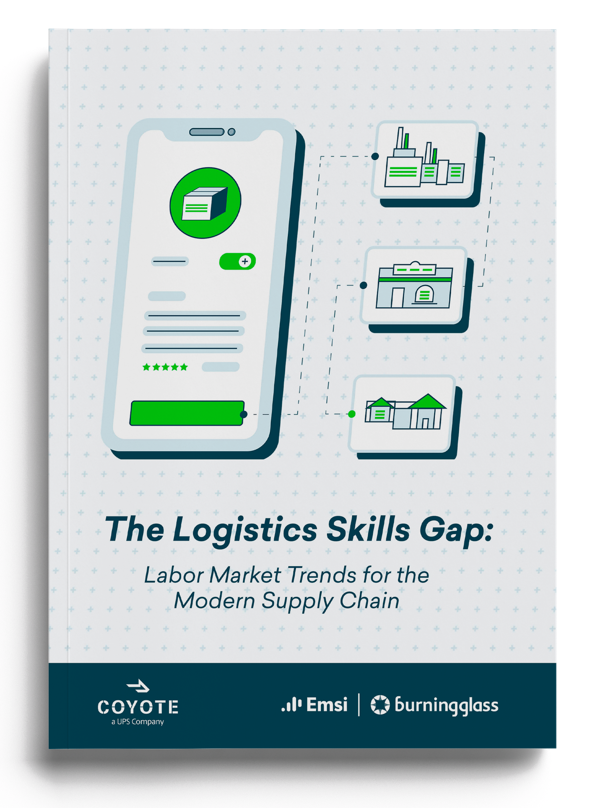
It contains additional insights into hiring trends, skill sets and personas for specific in-demand roles, and some tips for building a winning logistics team.
It will empower you to attract and retain the top talent you need to keep your operations running seamlessly.





